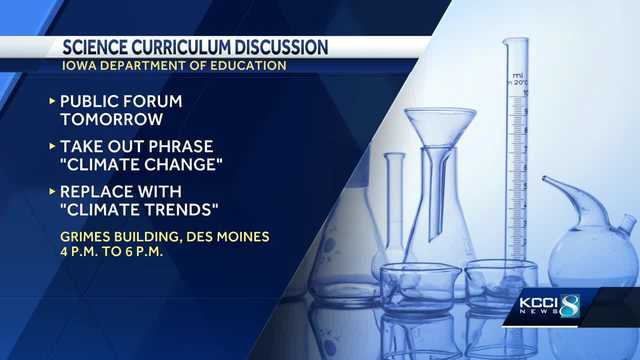Science Showdown: Iowa Residents Invited to Shape Future Classroom Learning

Central Iowa residents will have a chance to voice their perspectives on proposed science curriculum updates for public schools this Thursday. The public meeting offers community members an opportunity to provide direct input on potential changes to science education standards that could impact local students' learning experiences.
Educators and community stakeholders are encouraged to attend and share their thoughts on the proposed modifications, which aim to enhance science instruction and student understanding across the region's school districts.

